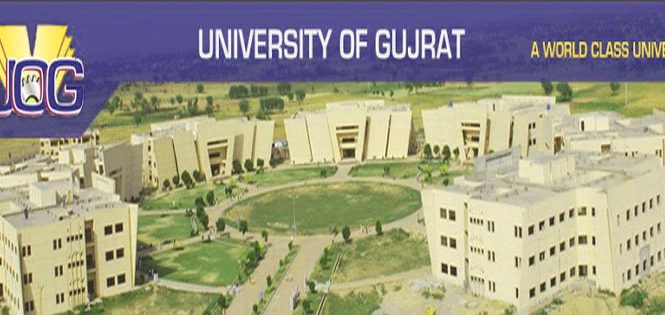M Phil Mass Communication important eBooks Dear Students of M Phil Mass Communication , University of Gujrat, Pakistan. Students of M Phil Mass Communication have to explore a variety of subjects and topics. It is not possible to buy books for every topic so teachers have prepared notes and other helping study material for students on different topics. It is commonly quite difficult and hassle for lecturer to share notes as well as for students to get the notes and other study material. You will always find a huge students’ rush on photocopier shop to get notes. Now masscommunicationtalk.com has maintained almost all the notes and study material for M Phil Mass Communication students. You can explore all the notes and study material online here. You can explore already uploaded notes as well as you can add your own notes. If you have developed your own notes or you wanted to […]
Copyright Act of Media in Pakistan
ARTICLE ON PARALLEL IMPORT INTO PAKISTAN CONTENTS 1- INTRODUCTION FRAMEWORK OF COPYRIGHT LAW (A) Subject matter of copyright (B) Ownership of copyright (C) Registration of copyright is not mandatory. (D) New discloure requirements in respect of records and video films. (E) Infringement of copyright PARALLEL IMPORT INTO PAKISTAN (A) Definition. (B) Rights of exclusive licenses versus free movement of goods. (C) Procedure for application to restrain import of infringing copies. Enforcement of order of Registrar prohibiting import of infringing copies. Power of Censor Board. Criminal Prosecution of Importers. Suit for infringement of copyright against importer. Conclusion. I. INTRODUCTION : Copyright Piracy has assumed global proportions due mainly to the rapid advance in technology. The emergence of new techniques of copying, apart from photocopying, such as recording, fixation and reproduction of audio visual programmes have led to trans national piracy on a massive scale. The object is to avoid payment of […]
OVERVIEW OF NORMATIVE THEORIES OF MASS COMMUNICATION
OVERVIEW OF NORMATIVE THEORIES OF MASS COMMUNICATION During the era of yellow journalism, most media professionals cared very little for the niceties of accuracy, objectivity, and public sensitivities. But in the first decades of the twentieth century, a crusade began among some media industry people and various social elites to clean up the media and make them more respectable and credible. The watchword of this crusade was professionalism, and its goal was elimination of shoddy and irresponsible content. Some sort of theory was needed to guide this task of media reform. The goal of this theory would be to answer questions such as these: • Should media do something more than merely distribute whatever content will earn them the greatest profits in the shortest time? • Are there some essential public services that media should provide even if no immediate profits can be earned? • Should media become involved in […]
NORMATIVE THEORIES OF MASS MEDIA COMMUNICATION (Introduction)
NORMATIVE THEORIES OF MASS COMMUNICATION (Introduction) At around half past nine on the morning of April 16, 2007, a deranged young man gunned down two students in a dormitory at Virginia Tech University. He would later that day use his automatic weapons to kill thirty more people on that idyllic campus. Between the two attacks, however, the shooter took the time to mail a package to NBC News. Arriving at the broadcast network’s New York headquarters at eleven in the morning two days later, the parcel included a twentyfive- minute self-made videotape and forty-three photographs. Accompanying these visuals, all featuring the angry, gun- and knife-wielding murderer, was a twentythree- page manifesto. The network debated what to do with this material. By six o’clock that night, the regularly scheduled start of its evening national news program, NBC’s news professionals had made their decision. That night’s coverage of the rampage included two […]
LIBERTARIANISM REBORN Propaganda
LIBERTARIANISM REBORN Propaganda By the end of the 1930s, pessimism about the future of democracy was widespread. Most members of the old-line elites were convinced that totalitarianism couldn’t be stopped. They pointed to theories like those of Lasswell and Lippmann as proofthat average people could not be trusted. The only hope for the future lay with technocracy and science. In the next chapter, we will trace the development of theories that arose in opposition to these technocratic views. Advocates of these emerging ideas didn’t base their views of media on social science; rather, they wanted to revive older notions of democracy and media. If modern democracy was being threatened, then maybe the threat was the result of having strayed too far from old values and ideals. Perhaps these could be restored and modern social institutions could somehow be purified and renewed. Theorists sought to make the Libertarianism of the Founding […]
MODERN PROPAGANDA THEORY
MODERN PROPAGANDA THEORY Consider the Hippler and Sproule characterizations of propaganda from earlier in this chapter: simplify a complex issue and repeat that simplification; use covert, massively orchestrated communication; and use tricky language to discourage reflective thought. Some contemporary critical theorists argue that propaganda conforming to these rules is alive and well today and that it is practiced with a stealth, sophistication, and effectiveness unparalleled in history. They point to a number of “natural beliefs” that have been so well propagandized that meaningful public discourse about them has become difficult if not impossible. Political discourse and advertising are frequent areas of modern propaganda study, and the central argument of this modern propaganda theory is that powerful elites so thoroughly control the mass media and their content that they have little trouble imposing their Truth on the culture. Close your eyes and think welfare. Did you envision large corporations accepting government […]
